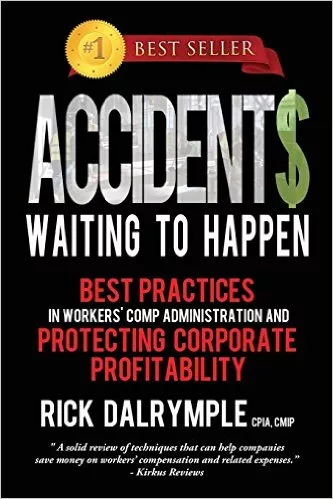Addressing Profanity in the Workplace
When employees curse excessively in the workplace, or even a little bit, some companies may want to use their own “F-word”— as in “firing.” Others may barely notice, and some may not want to deal with employees’ choice of language at all.
Yet employers need to carefully consider their responses to profane and obscene language in the workplace. Cracking down too hard on employees can lead to legal problems and turn supervisors into the language police. Companies may be surprised to find out that cursing employees can sometimes claim they are participating in protected work activity under the National Labor Relations Act (NLRA). This rule applies in both union and non-union workplaces.
However, ignoring crude comments can also harm customer relationships, make businesses seem unprofessional and put employers at risk for accusations of allowing a hostile work environment.
In one recent matter, a Hooters restaurant in California fired an employee who allegedly cursed at another employee after a mandatory bikini contest that several employees claimed was rigged. An administrative law judge with the National Labor Relations Board (NLRB) ruled that the employee was engaging in activity protected under federal labor law. The ruling also found that Employee Handbook rules that prohibited behavior, such as being insubordinate to managers and disrespectful to guests, were illegal, as written, because they violated federal labor law.
The city of Portland, Ore., found itself on the flip side of the situation when an employee sued for religious harassment based on a coworker’s profane language and comments about her Christian beliefs. The federal court ruled in the employee’s favor in that case.
Virtually every workplace will have one, two or even several employees who use crude, obscene and profane language. Many workplaces will also have employees who find such language deeply offensive. Balancing those competing concerns, while at the same time staying in compliance with all relevant laws, can be a tricky task unless employers actively address the issue before significant problems arise.
Profanity and the Workplace
For some employers, profanity may be common and accepted. For others, it may be unacceptable. For some organizations, it may be both. At a restaurant, cursing in the kitchen may be a regular occurrence, but the same cursing may be considered unprofessional in front of patrons. Blue language that may be heard regularly on a shop floor is often unacceptable in the front office, where it might offend customers.
Another challenge with managing potentially offensive language is its subjectivity. What one person may find shocking or profane may not bother someone else. While profanity and obscenities have different degrees of offensiveness, some words and phrases are clearly unacceptable in the workplace and must not be tolerated. Turning a blind eye to slurs about race, gender, ethnicity or sexual orientation, as well as sexual innuendo, can leave employers open to claims of harassment and hostile work environments.
Profane language can also be an indication of potential workplace violence. According to the U.S. Department of Labor’s Workplace Violence Program, approximately two million people throughout the country are victims of non-fatal violence at the workplace every year. The DOL considers “verbal abuse including offensive, profane and vulgar language” to be included in the forms of violence among coworkers.
Recent Cases
Several recent court and NLRB rulings have revolved around workplace language.
In the Portland, Ore. case, a female, a devout Christian and an employee of the city’s Bureau of Parks & Recreation, claimed a coworker regularly made profane comments that offended her. In November 2013, a jury found that the employee had been subjected to a hostile work environment based on her religious beliefs, and that the city knew or should have known about the harassment and should have taken action. The employee won damages of $14,080. The city was also required to pay attorneys’ fees.
The NLRB has recently come down in favor of several employees who were fired for cursing at their supervisors and around customers, based on the context of the swearing.
The Hooters case involved employees who were required to participate in a mandatory bikini contest at work. Two employees complained to their manager and other employees that the contest was fixed, since the contest winner, a marketing coordinator, had chosen her best friend and her friend’s boyfriend to act as judges. The workers also complained about supposedly inappropriate comments that bartenders had made during meetings about other waitresses.
When the contest winner was announced, the two employees accused the winner of cheating. Both employees were terminated for cursing at their coworker in front of guests.
A complaint was filed with the NLRB, and while one of the employee’s claims were dismissed, Hooters argued that the other employee was fired for cursing at coworkers. The administrative law judge in the case found instead that the employee was engaged in protected concerted activity. Hooters was ordered to reinstate the employee to her former job, with back pay and benefits.
In another recent NLRB decision, Plaza Auto Center Inc., 360 NLRB No. 117 (2014), a company owner was found to have wrongly fired an employee who swore at and attacked him. In that case, the employee had complained to an office manager about compensation practices at the used car sales company. During a meeting between the owner and the employee, the owner told the employee that he was “talking [about] a lot of negative stuff,” including about compensation. The employee lost his temper and began yelling obscenities at the owner. The employee also told the owner that no one liked him and that he was stupid, as he roughly pushed back his chair. The employee also told the owner that he would regret it if he were fired. The employee was fired.
In making its ruling that Plaza Auto Center violated the National Labor Relations Act in firing the employee, the Board looked to another legal decision — Atlantic Steel Co., 245 NLRB 814 (1979) — that outlined four factors that determine whether an employee’s behavior was so egregious as to lose protection under the NLRA:
- The place of the discussion
- The subject matter of the discussion
- The nature of the employee’s outburst
- Whether the outburst was, in any way, provoked by the employer’s unfair labor practices
The NLRB found that the employee’s outburst was “a spontaneous reaction to the Respondent’s serious, unlawful provocations by an employee who had never previously engaged in similar misconduct.” Accordingly, the NLRB held that the company had violated federal labor law.
What Employers Should Consider Now
The issue of profanity can seem like a no-win proposition for employers, so ignoring it often is the easiest approach. However, ignoring profanities can leave the organization even more vulnerable to complaints and lawsuits. It’s better to develop a proactive approach, including:
Considering your industry, employees and culture. With such a subjective issue, there are no hard-and-fast rules, except for explicitly banning the use of religious, racial, ethnic and gender-based slurs. Companies should also have a zero-tolerance policy for language regarding sexual acts. Otherwise, companies should consider how their organizations operate, what is considered normal for their industry, how much contact employees have with customers and other factors.
Evaluating the context. Companies should also differentiate between the occasional outbursts of foul language and sustained cursing directed at a particular employee or group of people. Rough language used as a weapon to intimidate or bully employees can lead to potential claims of a hostile work environment or harassment.
The topic of conversation is important, too. An employee who curses while talking about his or her weekend plans will not be in the same category as employees who are discussing working conditions or pay, which may fall into the category of protected concerted activity.
Frequently talking with legal and HR. In-house attorneys and outside counsel can provide insights into what policies regarding language are practical, legal and defensible. HR should be consulted about what is workable and how to implement the policies. Since this is a subjective area, companies should develop policies to quickly escalate issues whenever questions or concerns about profanity arise.
Putting it in writing. Policies should be as specific as possible and spelled out in the employee handbook and other training materials. The handbook should also outline disciplinary measures when employees violate the rules.
Employees who violate company profanity rules will often claim First Amendment protection. Remember that the First Amendment generally does not apply in the workplaces of private employers. Accordingly, the use of profanity is not protected by the Constitution at most workplaces.
Training managers and supervisors. Managers and supervisors should receive training about how to respond to cursing employees. Along with learning how to properly respond to employee concerns, supervisors and managers should know that they should never use profane language themselves in front of employees. They must lead by example.
Like jokes, foul language can be a non-issue to some people while offending others. Employers need to consider what is acceptable in their workplaces. Going too far to one extreme or another can open the company to expensive litigation and government inquiries.
Looking for a reprint of this article?
From high-res PDFs to custom plaques, order your copy today!







